Gaze at it long enough and you will see some signs of life; small boats meander up and down the water and a few locals throw their fishing nets hoping to earn some keep that day. Fish farmers wake up and check on their tilapias and the irrigation department plans the next week’s water supply. The odd tourist boat cruises by, tourists waving at locals as they go about their daily business along the river banks. Under water, the fish, eels and shellfish hunt and breed, doing their best to avoid the traps. And in the early mornings and evenings kayakers paddle gently up and down the river, exercising, and taking in the views. This is the life of the Ping River and it’s something most of us take for granted — but without it Chiang Mai would not be what it is today, or even exist at all.
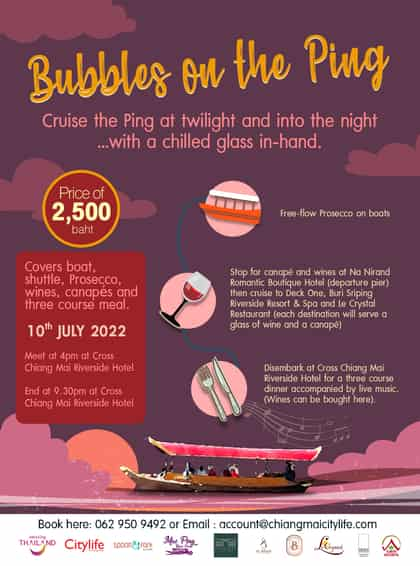
Artery of Civilisation
The Ping, along with the Wang, Yom and Nan rivers of the north join together to form the Chao Phraya River which then flows through the heart of Bangkok, spewing out into the Gulf of Thailand. Though often unnavigable, it was up and down this liquid route that people travelled between north and south for hundreds of years. King Mengrai, a ruler and conquer from China’s Xishuangbanna region, turned his eyes to the south and, in a bid to control the trade routes and create an alternative ‘silk road’ along the Ping River itself, captured Haripunchai in around 1281. Following his successful conquest, he created Wiang Kum Kam as his capital before abandoning it following nearly a decade of Ping floods, to finally move a handful of kilometres north to found Chiang Mai in 1296. Several centuries later, Daniel McGilvery, the first Presbyterian missionary to the north, would take three months to arrive in Chiang Mai from Bangkok on the Ping River in 1867.
The Ping River was of great importance to local merchants who piloted scorpion-tailed boats south towards the central plains, carrying forest products that would be traded and exchanged for salt, dried fish, clothing, tools and other products that would be taken back to Chiang Mai and traded with land-based merchants who would then distribute the goods via oxen or horses over the difficult mountainous terrain. “The scorpion-tailed boat was designed to navigate the rocky Ping River,” explained Kriangkrai Paisankereemas, a guide and historian at the Chiang Mai City Arts and Cultural Center, “because in those days the river was a lot wider and shallower.”
Communities living along the Ping River would fish and grow crops such as rice, living in traditional Lanna stilted houses to avoid the annual floods. Rice was grown year round thanks to the luk, a waterwheel that moved water into the fields via a network of bamboo tubes or canals which then channeled water to communities and farms across the area.
“The old city moat used to be filled by river water,” continued Kriangkrai. “Water would enter the moat at Hua Lin corner, and flow around the city to the southeast corner where it would follow a small canal back to the river. That corner is now called Katam, named after a fish trap used to catch the thrashing fish stuck in the corner.”
Industrialisation of the Ping
By the turn of the 20th century, Chiang Mai and the Lanna Kingdom was in the hands of the Siamese. Chinese and foreign investors flooded the area, all in search of lucrative teak wood and trade deals. Missionaries came and built Chiang Mai’s first church along the eastern bank of the river, an area set aside for foreign residents by the ruling government who occupied the safer, flood-free western banks. Land along the banks, even its islands, were being repurposed, such as a small island in the river that was donated to an American missionary Dr. James McKean by Chao Inthawarorot Suriyawong in 1907 to become a leper colony. With no cure for leprosy until the 1980s, lepers found relief in their sanctuary from social condemnation, many of whom remain at the McKean Rehabilitation Centre today.
Roads began connecting Chiang Mai to the central plains and by 1921, the railway had blasted through Khun Tarn mountain to Chiang Mai, shortening the journey from Bangkok by months. Boat travel became obsolete.
A Dammed Era
Before the construction of Mae Ngat Dam in 1985, there was an annual rhythm to the Ping River. In summer, children would frolic in the river as the water levels would get so low it was possible to walk across from Wat Gate to Warorot Market and hardly get your knees wet. Then when the monsoon rains came, furniture would be moved and boats taken out of sheds in anticipation of the bloating to come, as brown flood water seeped out, sometimes kilometres beyond its banks. Slowly over the next few decades the Royal Irrigation Department built more weirs, canals and water gates while also sealing up the banks of the rivers with walls, reshaping the Ping’s natural course, and rhythm, forever; deepening and narrowing the river as it flows through the city.
“I remember a time when villagers used to row boats and go fishing and collect morning glory before heading into the city to trade,” reminisced Phra Kuwisit Sirapon, Abbot of Ping-side Wang Singh Kham Temple in Pa Daed. “Now that’s impossible because of the weirs — nobody can move around anymore so life on the river has suffered.” Today, the river is almost void of boats, with just a few row boats locals use to fish, kayaks cutting across the twilight waters and a handful of boats ferrying tourists from sight to sight. Talapia farming has replaced fishing for all but the hardy hobbyist.
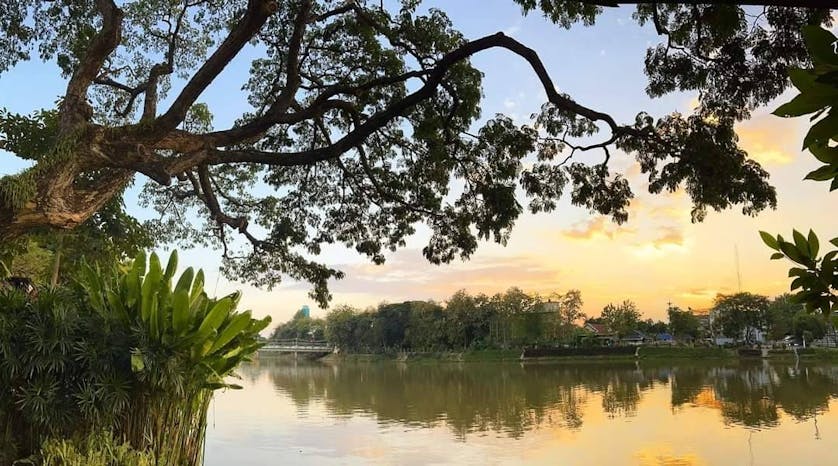
Blinging the Ping
Today the Ping is seeing a renaissance, with some fabulous new businesses opening up on its banks taking the time and making the effort to create attractive riverfronts, often with piers. There are five star hotels, award winning restaurants, charming cafes, beautiful homes and the ebb and flow of life which one sees on the banks of any major river.
When asked what we should do to preserve the future of the river, a local business person replied by saying “we must respect it, care for it and ensure there is enough water for the generations to come.” The overall consensus from all those who work, live or study the river is that the Ping is more than a river, it is a community and to preserve our community, we must preserve our river.
The Ping River is the lifeblood of the city and Citylife and the Tourism Authority of Thailand are proud to present the inaugural ‘Bubblies on the Ping’, an event aimed at celebrating the historic river and the vibrant life it gave and continues to give Chiang Mai.
We hope that this inaugural trip will spawn many others, eventually opening up the Ping River as a major tourism and lifestyle destination.
Here is what you will experience if you join us for this extraordinary one of a kind night:
Schedule
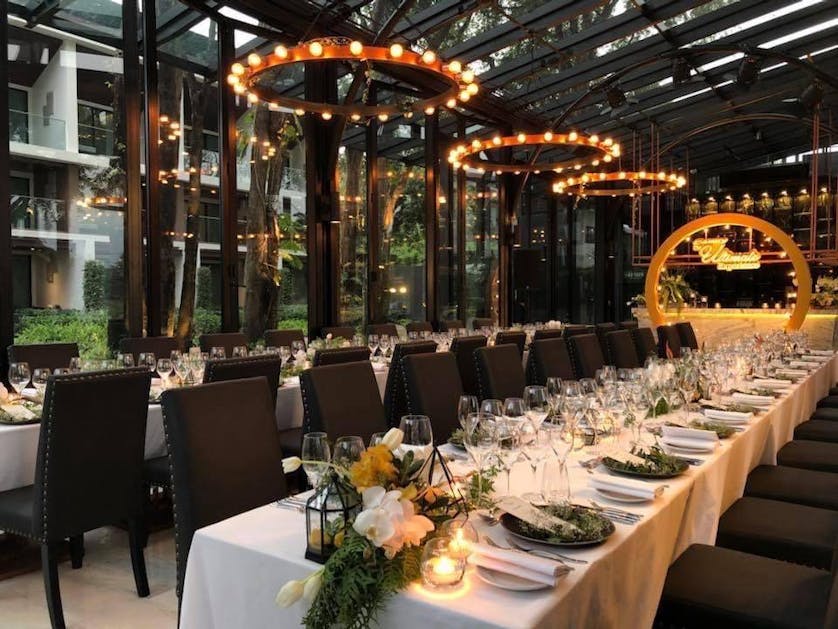
Arrive at Cross Riverside Chiang Mai at 4pm
Receive welcome drink before being transported to pier at 4.30pm
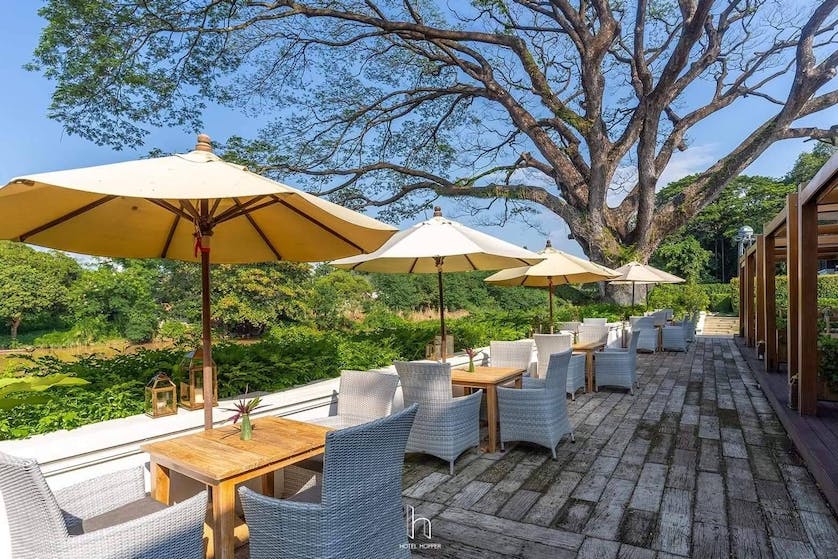
Arrive at Na Nirand Romantic Boutique Resort at 4.45pm
Served one glass of wine accompanied by hang-le spring rolls, lamyai macarons, kaffir lime quiche
Depart at 5.20pm
Free flow Prosecco on boat
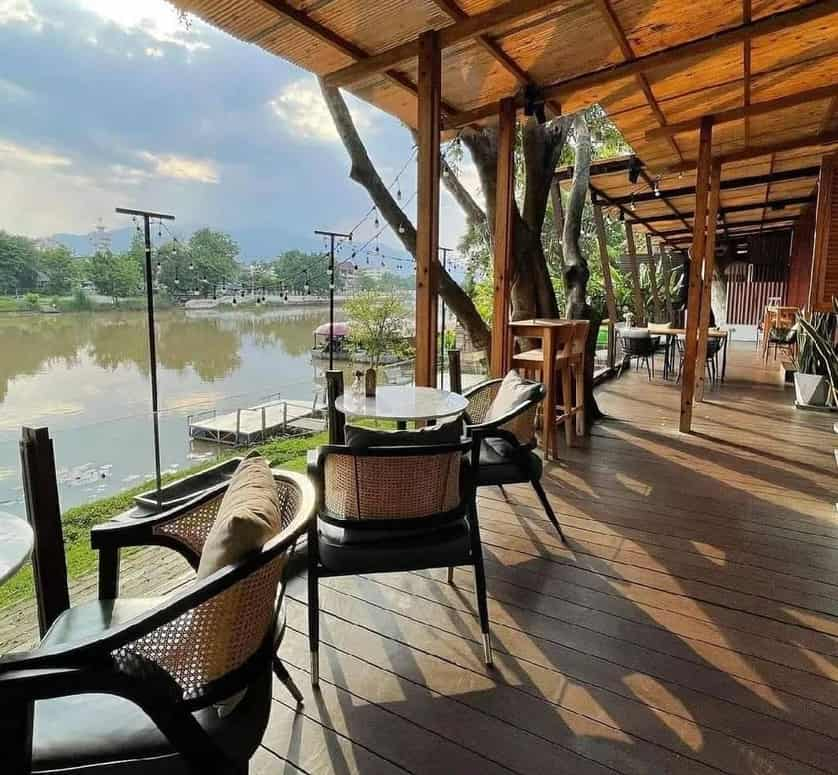
Arrive at Deck One at 5.30pm
Served one glass of red wine accompanied by canapé of fried vegetable spring rolls, banana samosas and teriyaki grilled chicken.
Depart at 6pm
Free flow Prosecco on boat
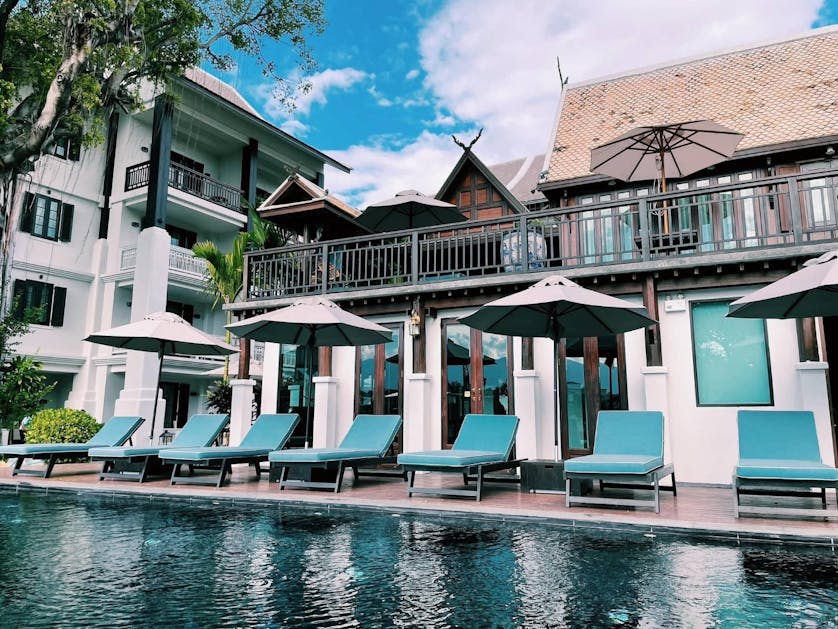
Arrive at Buri Sriping Riverside Resort and Spa at 6.15pm
Served one glass of wine with canapés of ham and cheese sandwich, banana samosa or cantaloupe with Parma ham.
Depart at 6.45pm
Free flow Prosecco on boat

Arrive at Le Crystal Restaurant at 6.55pm
Served one glass of special Prosecco with canapé of deep-fried frog leg with garlic butter sauce and a Caesar salad with grilled chicken.
Depart Le Crystal at 7.20pm
Free flow Prosecco on boat

Arrive at Cross Chiang Mai Riverside and receive one glass of sparkling wine.
One glass of Shiraz wine from Siam Winery during main course (with option to purchase more wine, a special offer from Siam Winery is at 888 baht per bottle) served with a three course Thai set menu by the challenging winner of Iron Chef Thailand), with live band.
Music along the boat will be piano played by Belgian National Artist Jonas Dept.
Maximum 30 people
4.30pm-9pm
2,500 baht net
Book here: 062 950 9492 or Email: account@chiangmaicitylife.com
